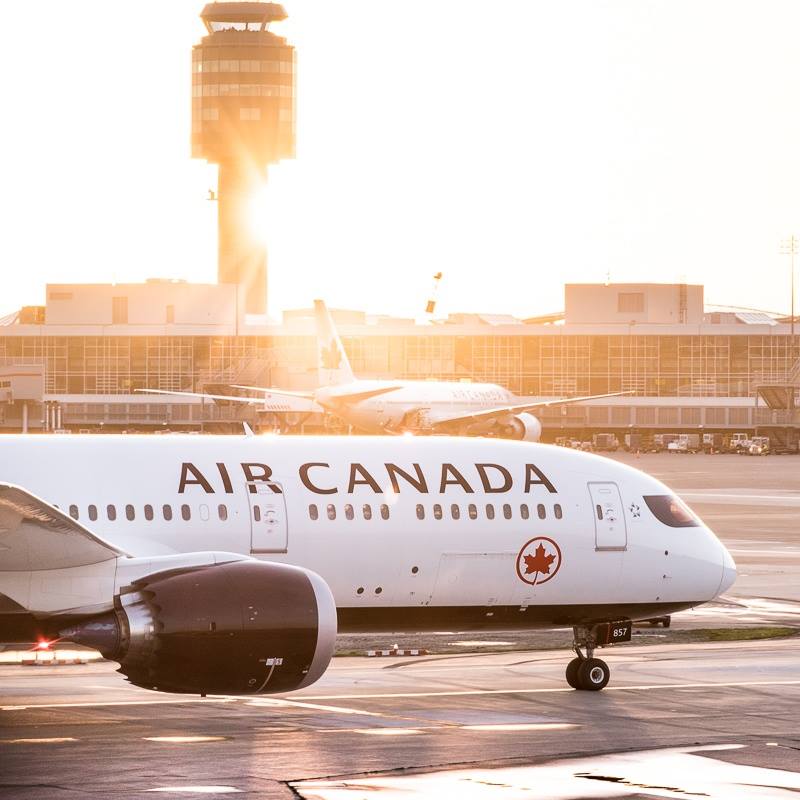Canada News
Air Canada halts all flights to Italy amid nationwide coronavirus lockdown

The airline’s last flight to Rome is scheduled to take off from Toronto Tuesday, with the final return flight departing Rome for Montreal on Wednesday. (File Photo: Air Canada/Facebook)
MONTREAL — Air Canada has suspended flights to and from Italy after the country extended a national lockdown in response to the novel coronavirus.
The airline’s last flight to Rome is scheduled to take off from Toronto Tuesday, with the final return flight departing Rome for Montreal on Wednesday.
Canada’s largest carrier said the decision was prompted by Italian regulations and “ongoing health and safety concerns” related to the COVID-19 outbreak, which has seen bookings plunge and cancellations soar as markets reel across the globe.
Air Canada plans to restart service on May 1. Meanwhile, affected customers will be notified and offered full refunds, a spokesman said.
In January, the airline halted all direct flights to China — the epicentre of the virus — as it braced for a hit to revenues.
COVID-19 has spelled difficulty for global airlines as companies suspend non-essential business travel and conventions and other events are cancelled amid increasing travel restrictions from governments.
The federal government is considering measures to offset the blow to airlines and the broader economy, said Economic Development Minister Melanie Joly.
“What we’re looking at is how can we mitigate the impacts while making sure that we can have still a strong summer season, and also that we can really bounce back,” she said before heading into a cabinet meeting in Ottawa.
Joly said she met Monday with the CEOs of Air Canada and WestJet Airlines Ltd. — Calin Rovinescu and Ed Sims — “to understand a little more about the impact of what is happening now.”
The outbreak is taking a toll on Air Canada, whose shares have fallen 37 per cent over the past month.
“Our baseline assumption is that Air Canada will see severe demand disruption in Q2 with the impact lingering through the remainder of 2020,” National Bank analyst Cameron Doerksen said in a research note.
Last month Air Canada forecast a “small increase” in adjusted earnings for 2020, based on the assumption that its cancelled routes to mainland China and Hong Kong will be fully recovered by the third quarter, along with a gradual return to service of its grounded Boeing 737 Max jets starting late in the same quarter.
But Doerksen predicted Tuesday that annual adjusted earnings would come in at $2.2 billion, or about 40 per cent below Air Canada’s outlook of $3.6 billion — which would also mark a 40 per cent decline from 2019 EBITDA (earnings before interest, taxes, depreciation and amortization).
The airline is nonetheless “well-positioned,” he added, with abundant cash and 35 per cent of its mainline fleet “unencumbered” — neither leased nor carrying debt— which could be parked at minimal cost as demand withers.
As the epidemic spreads, airlines are also imposing more precautions to protect passengers and crew.
WestJet said it has added a pair of disinfecting products — hospital-grade Clorox wipes and spray — to clean everything from tray tables to lavatories, belt buckles and overhead bin latches.
The carrier also sought to correct the “common misconception” that aircraft air is recirculated. All its planes have a circulation system that introduces fresh air into the cabin every two to three minutes through a filter, comparable to those used in hospitals, the company said.
On Thursday, Air Canada announced it would waive rebooking fees in light of concerns about the coronavirus, allowing a one-time change for tickets purchased between March 4 and March 31 for travel within 12 months.
The move falls short of those by United Airlines, Delta Air Lines and American Airlines this week, which are allowing passengers to rebook tickets to any destination through April 30 without paying fees.
In Europe, British Airways, Ryanair and EasyJet have cancelled all flights to and from Italy. Wizz Air has done likewise, extending the suspension to Israel, which has ordered all new visitors quarantined just weeks before Passover and Easter.
Lufthansa Group says it is reducing flight capacity by up to 50 per cent this month, scrubbing flights to mainland China and Iran and cutting back on those to Italy, Seoul and Hong Kong.
Travel and social restrictions that were extended across Italy illustrated how the virus and the broad disruptions it is causing are sweeping westward from China, where the outbreak began.
The epidemic along with drastic government responses go far beyond the SARS outbreak of 2003, which infected more than 8,000 people worldwide and killed close to 800, according to the World Health Organization.
“If you look at the snapback after SARS, air travel rebounded really quickly and very robustly,” said Robert Kokonis, president of Toronto-based consulting firm AirTrav Inc.
“But a bit of a difference between then and now is that Chinese outbound travel was relatively small. How fast can that snap back and how is their economy doing?”
More than 113,000 people have been infected with the coronavirus, and more than 3,900 have died of the COVID-19 illness it causes.
Most of the cases are in China, but its proportion is shrinking as the caseload grows elsewhere. More than 62,000 people have already recovered. But Italy’s intensifying struggle to halt the virus’ spread emerged as a cautionary tale.
Infections in Italy topped the 10,000 mark with 10,149 cases — more than anywhere else but China — and the number of deaths from the virus rose to 631, from 463 a day earlier, Italian Civil Protection authorities said Tuesday.
This report by The Canadian Press was first published March 10, 2020.
Companies in this story: (TSX:AC)
—With files from The Associated Press





















